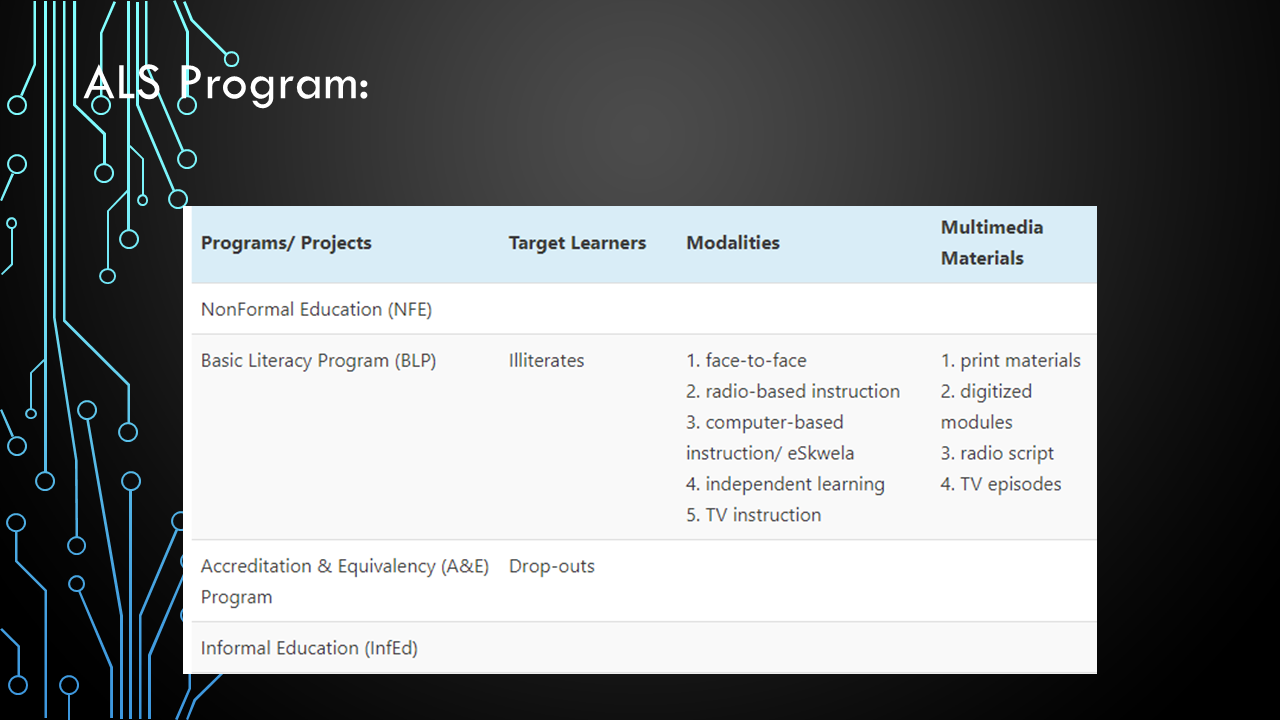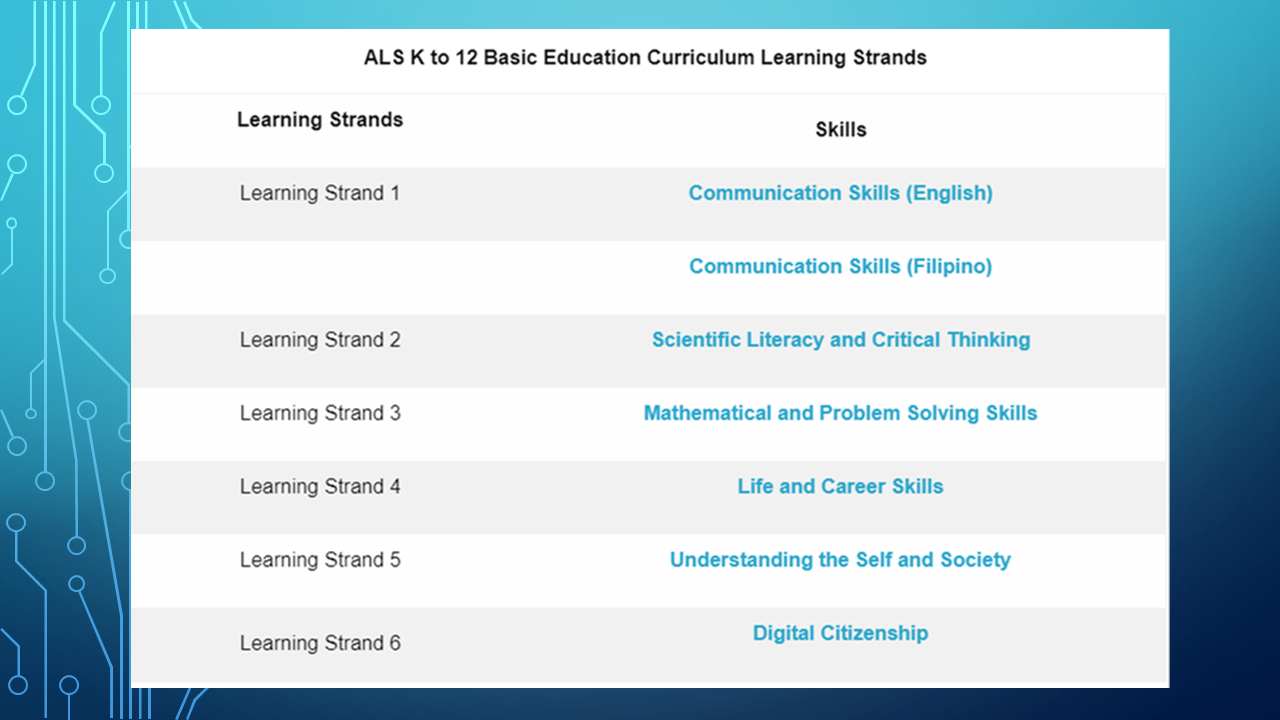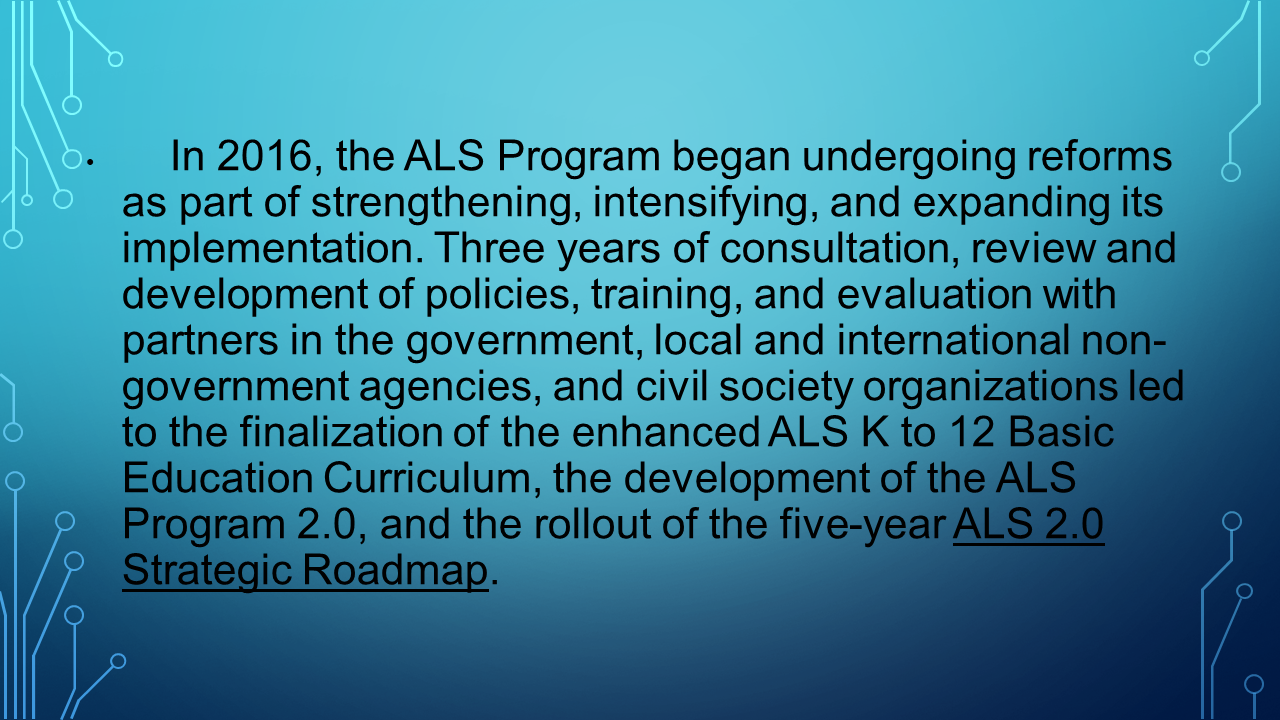school curriculum Development program
K TO 12 BASIC EDUCATION CURRICULUM
Col. E De Leon Elementary School followed the K to 12 Program in the Philippines was introduced in 2013. It was in 2013 when RA 10533 became a law. This law is known as the “Enhanced Basic Education Act of 2013”. It was popularly called K – 12 because the act, (RA 10533), enhanced the Philippine Basic Education System by strengthening its curriculum and increasing the number of years for basic education.
The enhanced Basic Education Act of 2013 or K-12 as it is commonly known now, provides for a mandatory
- 1 year of Kindergarten,
- 6 years of elementary,
- and Alternative learning system.
The K -12 program applies to public educational institutions.
The Enhanced Basic Education Act of 2013 or RA 10533 did not only lengthen the number of years of Basic Education but also delivered that Basic Education may not only be distributed via regular schools but may correspondingly be delivered through the alternative learning system.
Acceleration of pupils in public Basic Educational Institutions is still acceptable in accordance with the Department of Education rules and regulations.
The exact goal of the K- 12 Program is to produce 21st-century graduates equipped with the core values and lifelong competencies they need to contribute to societal progress and nation-building.
CURRICULUM GUIDE:
Kinder- Kindergarten Curriculum Guide
Grade 1 to Grade 6
Mother Tongue Curriculum Guide
Edukasyon Sa Pagpapakatao Curriculum Guide
- Health Curriculum Guide
- Arts Curriculum Guide
- Physical Education Curriculum Guide
- Alternative Learning System
- LS-1-Comm-Skills-Filipino with als
- LS-1-Comm-Skills-English with als
- LS-2-Scientific-and-Critical-Thinking-Skills with als
- LS-3-Mathematical-and-Problem-Solving-Skills with als
- LS-4-Life-and-Career-Skills with als
- LS-5-Understanding-the-Self-and-Society with als
- LS-6-Digital-Literacy with als
ALTERNATIVE LEARNING SYSTEM (ALS)
ALS Vision:
“Empowerment of the Filipino with desirable knowledge, attitudes, values, and skills that will enable him to think critically and creatively, act innovatively and humanely in improving the quality of his life and that of his family, community and country.”
ALS Mission:
“It is envisioned that with the help of Alternative Learning System (ALS), every Filipino will be awakened, empowered and transformed into a productive, self-reliant, responsible, humane and upright citizen who can contribute to the betterment of the family, community and country. It is also envisaged that ALS will help alleviate poverty and sustain social and economic growth via the development of employable skills and the generation of self-employment.”
ALS Goals and Objective:
To provide viable alternative to the existing formal education instruction, encompassing both non-formal and informal sources of knowledge and skills.
The Alternative Learning System (ALS) is a parallel learning system in the Philippines that provides opportunities for out-of-school youth and adult (OSYA) learners to develop basic and functional literacy skills, and to access equivalent pathways to complete basic education. Many Filipinos do not have a chance to attend and finish formal basic education (Grades 1-6 and Year 1-4) due to many reasons. Some drop out from schools while some do not have schools in their communities. Since every Filipino has a right to free basic education, the Government establishes ALS to provide all Filipinos the chance to have access to and complete basic education in a mode that fits their distinct situations and needs.
Republic Act No. 11510 (Alternative Learning System Act)
Aims to provide adequate, timely, and quality attention and support to the basic learning needs of out-of-school children in special cases and adults including indigenous peoples (IPs). R.A. 11510 aims to hire, capacitate, and develop ALS Teachers, Community ALS Implementers and Learning Facilitators to deliver a range of ALS programs especially in far-flung, unserved, underserved, conflict-affected communities and communities in emergency situations. The ALS program is expanded and strengthened to provide increased opportunities for out-of-school children in special cases and adult learners, including indigenous peoples, to develop basic and functional literacy and life skills, and pursue an equivalent pathway to complete basic education.“ The law guarantees equitable access for all learners, including those who reside in the unreached, underserved, conflict-affected communities, and communities in emergency situations to avail of systematic, flexible, and appropriate alternative basic education programs outside of the formal school system.



















school physical Development program
E – LIFE (Project Enhancement of the Learning Institution to create a Friendly Environment)
Improve the clean and green, and waste segregation by practicing the 5Rs
PHYSICAL DEVELOPMENT
School Maintenance Services Program
Improve school facilities and learning centers
Brigada Eskwela/Adopt-A-School
Increase stakeholders involvement to support school’s programs and projects
School-Based Management Implementation Program
To improve School-Based Management Implementation Program




